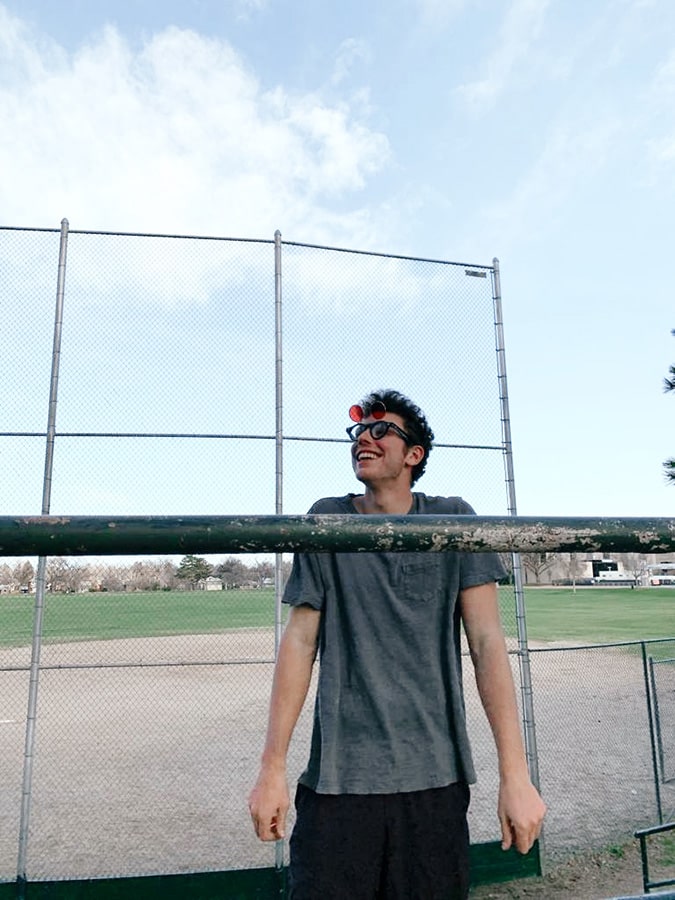My name is Ben Gottesfeld and I am from Denver, Colorado. I currently live in Jerusalem and have been here for the past month. I lived in Tel Aviv for four and a half months before arriving in the Holy City. Like many of my peers, my decision to join Aardvark Israel was a reflection of the chaotic pandemic existence we are all experiencing. I decided two weeks before the program started, after being notified that my Freshman year of college at American University would be remote and online. Although it was a sudden decision, I can now say I will be forever grateful.
Tel Aviv was everything I could ask for. From the beautiful beaches to the greenest parks, Tel Aviv is paradise (especially for American teens). The weekend trips that my friends and I organized consisted of some of the best experiences of my life. From skydiving over the Dead Sea and Masada (I’m sorry you had to find out this way, Mom and Dad), to ATVing in the breathtaking Golan Heights, the memories I have made will stay with me forever. Even the fourteen-day initial quarantine followed by the two-week lockdown was memorable.
The transition between cities has been one for the record books. We all knew there would be a big difference between the two cities, but it’s hard to appreciate it until you live it. Tel Aviv, a thriving, young and progressive city to Jerusalem, a city that is immersed in religious and political passion, where the ultraorthodox have recently held riots resisting the Coronavirus lockdowns and restrictions.
With this backdrop, for my internship in Jerusalem, I decided to learn more about the politics, policies, media, and history of the Israel-Palestine conflict. I work for the Center for Near East Policy Research with my mentor, David Bedein. Within the first three weeks, I have attended Zoom meetings with David, other investigative journalists, embassy members, and government officials. The complexities of getting things done in Israeli politics and the diverse and opposing views and historical claims are not easy to understand.
Working with the Center for Near East Policy Research, and speaking with investigative journalists, has also helped me to understand how much misinformation and bias exists within and about Israel and the Middle East. But, it has also made me grateful for the opportunity to form my own views and be prepared to address questions about our Jewish State.
Some of the work I have been doing to educate myself has been to read the Jerusalem Post and the Times of Israel. These are English media platforms which are helpful in understanding current events. Unfortunately, I don’t yet speak Hebrew fluently (as my recent grade will attest). I also just finished reading, and then interpreting a piece about Benjamin Netanyahu’s book, Terrorism: How the West Can Win. The book consists of statements from political leaders, jornalists, scholars, foreign experts, and specialists on international terrorism and the Middle East. For me, the book not only raises questions about how to deal with international terrorism, but also with extremism, whether it comes from a foreign threat or a domestic one. Having watched the recent events in the United States at the Capitol, I have realized that the challenges I am learning about Israel and the Middle East may also be applicable to the dangers of internal division, deception, and corruption in the United States.
I am looking forward to spending time with my friends here in Jerusalem and learning more about this amazing country and its challenges. We are all looking forward to the arrival of the new Aardvark Israel students (once the current restrictions are lifted) and to Israel’s continuing vaccination program so that we can travel again. Most of all, I am grateful for my roommates and my friends who have become like family for me here.


















